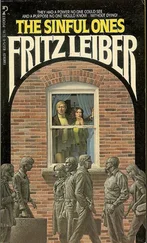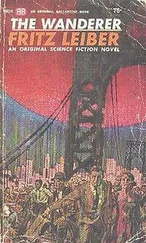Fritz Leiber - The Best of Fritz Leiber
Здесь есть возможность читать онлайн «Fritz Leiber - The Best of Fritz Leiber» весь текст электронной книги совершенно бесплатно (целиком полную версию без сокращений). В некоторых случаях можно слушать аудио, скачать через торрент в формате fb2 и присутствует краткое содержание. Жанр: Фантастика и фэнтези, на английском языке. Описание произведения, (предисловие) а так же отзывы посетителей доступны на портале библиотеки ЛибКат.
- Название:The Best of Fritz Leiber
- Автор:
- Жанр:
- Год:неизвестен
- ISBN:нет данных
- Рейтинг книги:3 / 5. Голосов: 1
-
Избранное:Добавить в избранное
- Отзывы:
-
Ваша оценка:
- 60
- 1
- 2
- 3
- 4
- 5
The Best of Fritz Leiber: краткое содержание, описание и аннотация
Предлагаем к чтению аннотацию, описание, краткое содержание или предисловие (зависит от того, что написал сам автор книги «The Best of Fritz Leiber»). Если вы не нашли необходимую информацию о книге — напишите в комментариях, мы постараемся отыскать её.
The Best of Fritz Leiber — читать онлайн бесплатно полную книгу (весь текст) целиком
Ниже представлен текст книги, разбитый по страницам. Система сохранения места последней прочитанной страницы, позволяет с удобством читать онлайн бесплатно книгу «The Best of Fritz Leiber», без необходимости каждый раз заново искать на чём Вы остановились. Поставьте закладку, и сможете в любой момент перейти на страницу, на которой закончили чтение.
Интервал:
Закладка:
I could likewise wish that this book held a sample or two of Leiber’s horror stories. In my opinion, which Fritz modestly does not share, Lovecraft and Poe himself never dealt out comparable chills. The typical Leiber frightener gains tremendous power by its economy,
its evocative contemporary setting, and its bleak brilliance of concept—like “Smoke Ghost,” to name a single tale, whose phantom is in and of the corrupted air pervading a modern industrial city.
And you would have enjoyed “The Sixty-Four-Square Madhouse” and/or “The Moriarty Gambit,” both masterly chess stories, the latter also a grand Sherlock Holmes pastiche. Well, look them up. All the omissions I have mentioned are not the fault of author or editor, but merely due to lack of space. They would have crowded out equally vivid pieces that you do find here.
The novels were inevitably excluded. But any discussion of Leiber’s work, or of science fantasy as a whole, must consider them. They are few in number, but each is unique and, with two exceptions, of major significance in the development of present-day imaginative literature.
The first exception is Tarzan and the City of Gold, “only” a delightful continuation of Burroughs. Come to think of it, though, a scholar of English letters would find it most interesting to trace out how Leiber managed to convey the flavor of his model while avoiding all its crudities, outdoing Burroughs hi every way that counts, and throwing occasional philosophical and moral issues into the bargain. Does anybody need material for a master’s thesis?
Doubtless many will argue with my assertion that The Green Millennium is not a landmark. It is, in the sense of being a fine book, highly recommended. But it carries further the world of “Coming Attraction” and “Poor Superman,” both hi the present collection, and thus does not break new ground—by Leiber’s standards—however inventive and often astoundingly witty it is. All the rest of us, from Heinlein on down, would rank it among our own best, had we written it.
Heinlein offers a natural starting point for a few words about Gather, Darkness!, that prototype of the interplay of ideas which has always given vitality to science fiction. In 1940 appeared his serial This Goes On —, wherein the United States has fallen under a totalitarian regime posing as the church of a new faith and using technological devices to work suitably impressive “miracles.” A year later, under his pseudonym “Anson MacDonald,” he brought forth Sixth Column. There, the United States has been invaded and occupied by a foreign power which allows the people freedom of religion but of nothing else. A small underground takes advantage of secret scientific knowledge—gathered just before the collapse, so that it was never brought to bear in the war—to give the priests of a stalking-horse faith similar capabilities.
Heinlein stopped with those two books, but Leiber saw that the theme was still full of potential. Suppose such a church came to power, then never stepped down again and never was overthrown for centuries. In Gather, Darkness! it has built a neo-medieval world of ignorant commoners dominated by a hierarchy that really can invoke “supernatural” sanctions in the name of its God. A liberation movement finally does start. But in this environment it calls itself “witchcraft” and claims to serve the Devil! There are many magnificently funny details (e.g., since the priesthood rides around in aircraft built to look like angels, the aircraft of the opposition are bat-winged and horned) but the story isn’t simply a romp. Its account of brainwashing by chemical and electronic means is fast becoming a foul reality.
Gather, Darkness! was followed by a swarm of dull imitations. But surely, hi due course, it partly inspired Philip Jos6 Farmer’s seminal work The Lovers. That’s what I mean by a landmark work.
I wonder how Women’s Lib would react to a reissue of the fantasy novel from this period, Conjure Wife, with its assumption that all women are witches but they don’t tell their men. Probably there’d be general pleasure. It was popular enough to get two filmed versions; and I know several ladies hi the movement who still love the original story. As often elsewhere, Leiber doubled his strength by combining dazzling imagination with unsparing realism. The principal setting is a small college community, and I have since observed for myself how vicious the infighting can get in such a place. By the way, the hero, Norman Saylor, reappears in this collection. Leiber likes to interconnect tales whenever possible.
Likewise, several of Leiber’s stories are part of a series incorporating the many-branched time-lines whose origins were described hi the short novel Destiny Times Three. Ranging from a placid Utopia through a cruel dictatorship to a freezing ruin of an Earth—and beyond—this novel is more than a fastpaced chase story; it is a vatic study of power over nature and over man, so easy to misuse and so nearly impossible to use rightly.
Similarly, Leiber wrote a number of stories hi what has come to be known as the Change-War cycles— this series has rather overshadowed the one mentioned above. A couple of the Change-War stories are reprinted here. The heart of the cycle is in another novel, The Big Time. Few comparable tours de force exist anywhere in literature. The action takes place continuously in a single setting, a station outside the cosmos to which half-crazed soldiers from all time and space are sent for a little rest and recreation. Beneath the flamboyancies, tension racks up notch by notch toward a breaking-point climax followed by an ironic denouement. It’s fantastically good theater— literally. How I wish to see it staged!
Being such a virtuoso performance, The Big Time doesn’t seem to have had any followers. I admit to keeping it in mind while writing my own A Midsummer Tempest , but cannot claim that that employs the dramatic unities as the former book did. Evidently nobody in our field can match Fritz Leiber here.
He went on to a different technique, the out-and-out satirical, hi The Silver Eggheads. This account of an ultra-mechanized future lacks the misanthropy of a Swift but bites just as hard. I really think its blend of sardonicism, earthy (even slapstick) mirth, and underlying compassion is best likened to Aristophanes. For instance, consider what might be done with pseudo-female robots—
“Can you imagine, Flaxy, having it with a girl who is all velvet or plush, or who really goes all hot and cold, or who can softly sing you a full-orchestra symphony while you’re doing it ‘t or maybe Ravel’s Bolero , or who has slightly—not excessively —prehensile breasts or various refreshingly electric skin areas, or who has some of the features—not overdone, of course—of a cat or a vampire or an octopus, or who has hair like Medusa’s or Shambleau’s that lives and caresses you, or who has four arms like Siva, or a prehensile tail eight feet long, or... and at the same time is perfectly safe and can’t bother or involve or infect or dominate you in any way?” —consider this machinery, and when you are done laughing, consider the latest issue of Playboy.
A slightly similar minor motif occurs hi The Wanderer. This novel concerns the effects on a large and varied cast of characters of a mobile planet coming near Earth. All kinds of things happen, all fascinating. But I have a reason for singling out the relationship, which eventually becomes erotic, between the human Paul and the highly evolved, feline-like Tigerishka. Leiber flinches no more from the fact that we are sexual beings than he does from the fact that we are limited, usually ridiculous, and ultimately mortal. This quotation will at least give you some extra words of his:
Читать дальшеИнтервал:
Закладка:
Похожие книги на «The Best of Fritz Leiber»
Представляем Вашему вниманию похожие книги на «The Best of Fritz Leiber» списком для выбора. Мы отобрали схожую по названию и смыслу литературу в надежде предоставить читателям больше вариантов отыскать новые, интересные, ещё непрочитанные произведения.
Обсуждение, отзывы о книге «The Best of Fritz Leiber» и просто собственные мнения читателей. Оставьте ваши комментарии, напишите, что Вы думаете о произведении, его смысле или главных героях. Укажите что конкретно понравилось, а что нет, и почему Вы так считаете.









